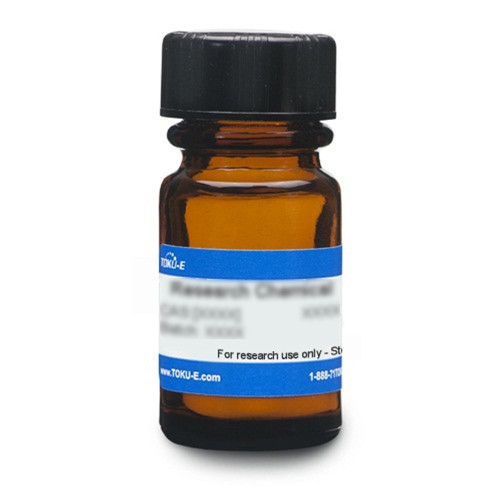Idelalisib is the free base version of the compound. It is a small molecule inhibitor of phosphoinositide 3-kinase. It also inhibits other class I P13K enzymes. It also inhibits several signaling pathways, including B-cell receptor signaling.
| Mechanism of Action | Idelalisib blocks the delta isoform of the enzyme phosphoinositide 3-kinase signaling, P110δ . The result is decreased phosphorylation of Akt and other effectors. By blocking ongcogenic signaling, the compound has utility for B-cell malignancies. |
| Cancer Applications | Cytotoxicity p110δ-positive multiple myeloma cells was induced by Idelalisib, but was non toxic to healthy PBMCs. The compound blocked in vitro capillary-like tube formation (angiogenesis). A hallmark of autophagy is LC3-II, and Idelalisib was also found to induce LC3-II (Ikeda et al, 2010). In cell-based assays with B-cell tumor lines and primary cells, Idelalisib had 240- to 2500-fold selectivity for P110δ over the other class I P13K isoforms. In SU-DHL-5, WSU-NHL, and CCRF-SB tumor cell lines, exposure to Idelalisib induced apoptosis, reflected in a 3- to 5-fold increase in annexin V staining. By blocking oncogenic signaling, the compound has utility for B-cell malignancies (Lannutti et al, 2011). |
| Molecular Formula | C22H18FN7O |
| References | Ikeda H et al (2010) PI3K/p110δ is a novel therapeutic target in multiple myeloma. Blood 116: 1460-1468 PMID 20505158 Lannutti BJ et al (2011) CAL-101, a p110delta selective phosphatidylinositol-3-kinase inhibitor for the treatment of B-cell malignancies, inhibits PI3K signaling and cellular viability. Blood 117: 591-594 |


